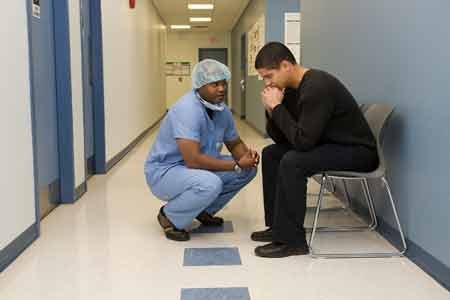BALTIMORE — I always thought that one day, when I had time, I would write an orientation of sorts for anyone who should find themselves on the receiving end of a cancer diagnosis. Given the current statistics, such a diagnosis is in the forecast for most of us. It is merely a matter of time. When that time comes, I hope that this list of five things to remember will make the cancer journey— for indeed it is a journey— a little more tolerable.
- Be grateful: If you are reading this, you most likely live in the United States. Stop here, close your eyes and say a prayer of gratitude to whomever you may consider your God. It doesn’t matter how bad the cancer is, or how dire the prognosis you live in a country that not only has cutting edge medicine, but also the option to seek an infinite number of opinions. When you are done circling the opinions, your original doctor will take you back and treat you well. That, my friend is an absolute privilege and is so often over-looked.
- Take notes, get a binder: From day one, you are going to attend the college of cancer. There will be information, mountains of it. And after a while, you will swear no one ever told you any of it. When you cannot turn your mind off to sleep at night, write down all your concerns, questions you have and then try and sleep. Be your greatest advocate and ask all your questions. There are truly no stupid questions. This is your life and if it keeps you up at night, your provider wants to hear about it. Avoid, if you can, reading up on your condition and prognosis on the Internet. Practice some self-preserving narrow-mindedness. Trust that the best source of information about the specifics of your cancer and prognosis is your doctor. Most oncologists will be as honest as you want them to be. Ask the question and they will answer you.
- Get familiar with members of your medical team and use of each of them wisely: In most cancer treatment centers there is usually a team approach to your care. Find out what each person on your team does and call on them for their area of expertise. An entire army of people is working together to make sure you receive quality care. Insisting on only speak to your doctor results in long periods of time waiting for an answer that someone more available, say a nurse practitioner, nurse or your social worker, could have helped with.
- Be compliant: I wish I could write this in capital letters and not sound angry. You are going to have sick days either because of the cancer itself or its treatment. You will very likely experience nausea and vomiting. You will get prescriptions of various drugs to combat these symptoms and very clear instructions on how to take them. If in your life before cancer you had trouble taking medicines, give it your best shot and take your pills. Cancer dictates that you have a paradigm shift, a huge one. A lot of research and time has gone into creating this unique combination of medications for you. Trust this and your ordeal will be more tolerable. Sometimes treatment doses have to be lowered or held altogether because of illness. Let none of it be because you did not do your part.
- Be kind to yourself: We are not talking about pampering yourself or going to the spa, although this definitely counts. You have cancer. Allow it to all be about you. Find a way to re-arrange your life in such a way that you can get your treatments and rest. Build your own village then extend your village. Let people know that you are facing possibly the biggest challenge of your life and ask if they can help you and then provide specific ways they can help-pick up your kids, run an errand, take you to treatment. People are often yearning to be kind. Give them the opportunity. You will be surprised.
Joyce Hamba is an oncology nurse in Baltimore. She is a passionate patient advocate with interests in equality of access to comprehensive cancer care regardless of race and socio-economic standing. You can email her at joyhamba@yahoo.com.
